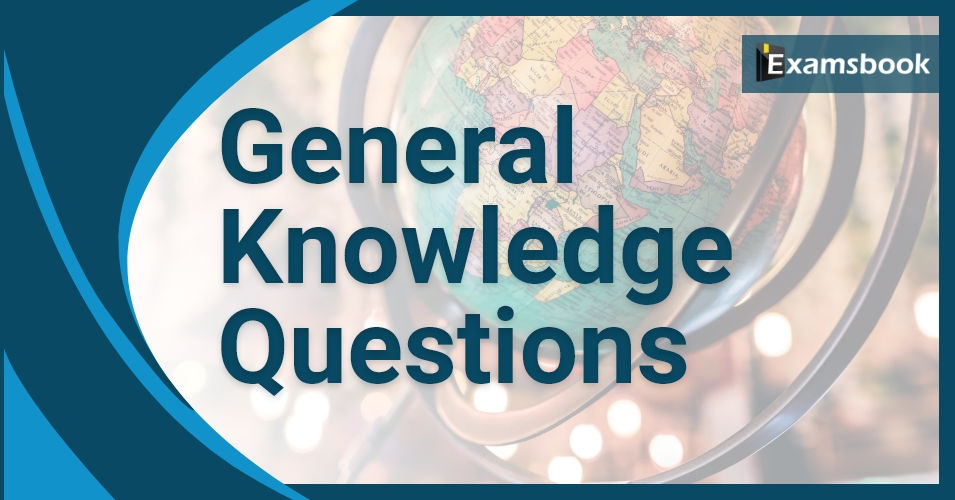General knowledge questions and answers for competitive exams (Part: 2)

The first meeting of the Constituent Assembly took place on 9 December 1946. Which major political party boycotted it?
(A) Bharatiya Jana Sangh
(B) Garam party
(C) Praja Socialist Party
(D) Muslim League
Correct Answer : D
Explanation :
The Constituent Assembly held its first meeting on December 9, 1946. The Muslim League boycotted the meeting and insisted on a separate state of Pakistan.
With reference to the Union Government, consider the following statements:
The N. Gopalaswami Ayyangar Committee suggested that a Minister and a Secretary should be solely designated to carry out and promote administrative reforms.
On the basis of the recommendation of the Administrative Reforms Commission, 1966, the Department of Personnel was created in 1970 and placed under the charge of the Prime Minister.
Which of the statements given above is/are correct?
(A) Only 1
(B) Only 2
(C) Both 1 and 2
(D) Neither 1 nor 2
Correct Answer : B
Explanation :
The Gopalaswami Ayyangar Committee suggested that a Minister and a Secretary should be designated solely to pursue and promote the subject of administrative reform. (2) In 1970, the Department of Personnel was constituted on the recommendation of the Administrative Reforms Commission, 1966 and placed under the charge of the Prime Minister.
Any legislation which gives unguided and uncontrolled discretion to any executive or administrative authority in the matter of enactment of the law violates which of the following articles of the Constitution of India?
(A) Article 14
(B) Article 28
(C) Article 32
(D) Article 44
Correct Answer : A
Explanation :
The State shall not deny to any person equality before the law or the equal protection of the laws within the territory of India. The said article is clearly bifurcated – while it commands the State not to deny to any person 'equality before the law', it also commands the State not to deny to any person the equal protection of the laws. Equality before the law prohibits discrimination. It is a negative concept. The concept of 'equal protection of laws' requires the State to accord special treatment to persons in different situations in order to establish equality among all. It is positive in character.
When does the President of India address both the houses of the Parliament at the beginning of the first session?
(A) Every Year
(B) After every general election to the Lok Sabha
(C) Both 1 and 2
(D) Neither 1 Nor 2
Correct Answer : C
Explanation :
In the case of the first session after each general election to Lok Sabha, the President addresses both Houses of Parliament assembled together after the members have made and subscribed the oath or affirmation and the Speaker has been elected. The President's Address is a solemn and formal act under the Constitution.
With reference to India, consider the following statements:
There is only one citizenship and one domicile in India. Only a person who is a citizen by birth can become the head of the state.
A foreigner who has once been granted citizenship cannot be deprived of it under any circumstances.
Which of the statements given above is/are correct?
(A) only 1
(B) only 2
(C) 1 and 3
(D) 2 and 3
Correct Answer : A
Explanation :
Statement 1 is correct. In India, the allegiance of citizens is only to the Union. There is no separate state citizenship. Also, when an Indian citizen voluntarily acquires citizenship of another country, his Indian citizenship automatically ceases. Only one domicile is permitted in India.
What is meant by constitutional government?
(A) A representative government with a federal structure of a nation
(B) A government whose head has nominal powers
(C) A government whose head has real powers
(D) A government which is bound by the limitations of the constitution
Correct Answer : D
Explanation :
Constitutional government is a government which runs according to the constitution of the country. It refers to a government which is limited by the constitution which may be written or unwritten. The rules and policies of the government are limited by a constitution which describes the basic law of the land.
What was the actual constitutional status of India on 26 January 1950?
(A) Democratic Republic
(B) Sovereign Democratic Republic
(C) Sovereign Secular Democratic Republic
(D) Sovereign Socialist Secular Democratic Republic
Correct Answer : B
Explanation :
On 26 January 1950, India was granted the constitutional status of a 'sovereign, democratic, republic'.
What is the status of the right to property in India?
(A) It is a legal right, which is available only to citizens
(B) It is a legal right, which is available to any person
(C) It is a fundamental right, which is available only to citizens
(D) It is neither a fundamental right nor a legal right
Correct Answer : B
Explanation :
The Supreme Court has recently held that the right of a citizen to own private property is a human right. Right to property is a legal right available to any person. Article 300-A provides that no person shall be deprived of his property except by authority of law.
Under the Indian Constitution, centralisation of wealth violates what?
(A) Right to equality
(B) Directive Principles of State Policy
(C) Right to liberty
(D) Concept of welfare
Correct Answer : B
Explanation :
According to Article 39 (c) of the Directive Principles of the Indian Constitution, the operation of the economic system shall not result in concentration of wealth and means of production to the general detriment. Hence, concentration of wealth violates the Directive Principles of State Policy.
Which of the following is not appointed by the President of India?
(A) Lok Sabha Speaker
(B) Chief Justice of India
(C) Chief of the Air Force
(D) Chief of Army Staff
Correct Answer : A



